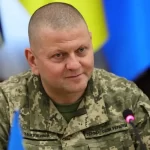The world is facing unprecedented challenges as it navigates through what United Nations Secretary-General Antonio Guterres has termed an “age of chaos.” Addressing the Security Council in New York, Guterres highlighted the growing divisions within the intergovernmental organization, comparing the current state to that of the Cold War era.
Guterres emphasized the grave humanitarian consequences of ongoing conflicts and wars, describing the reality for millions of innocent civilians as “deadly” and “hungry hell.” He warned of a “dangerous and unpredictable free-for-all” exacerbated by geopolitical fissures that have led to a deadlock in the Security Council.
One of the key issues dividing the UN is the Israel-Gaza conflict, with Guterres expressing alarm over Israel’s intentions to escalate its military offensive in the besieged enclave. He cautioned that such actions could worsen the humanitarian crisis and have significant regional repercussions.
In addition to conflicts, Guterres raised concerns about the proliferation of weapons of mass destruction, noting that states are competing to enhance their arsenals without sufficient safeguards. He highlighted the absence of mechanisms to manage relations in today’s multipolar world, contrasting it with the Cold War era’s more structured approach.
Amidst these challenges, Guterres urged member states to prioritize environmental sustainability, calling for a commitment to reducing harmful emissions and phasing out fossil fuels. He characterized humanity’s “war with nature” as a “crazy fight to pick,” emphasizing the urgent need for collective action.
Looking ahead, Guterres proposed the ‘Summit of the Future’ in September as an opportunity for global leaders to shape multilateralism for the years to come. Despite the bleak global outlook, he emphasized the importance of unity and cooperation in addressing the pressing issues facing the world today.
As the world grapples with complex geopolitical dynamics and ongoing crises, Guterres’ call for collective action underscores the imperative for global solidarity and effective multilateralism in confronting shared challenges.
United Nations Warns of Approaching “Age of Chaos” Amid Global Tensions
In a stark warning to the international community, the United Nations Secretary-General Antonio Guterres declared that the world is teetering on the brink of an “age of chaos.” His somber assessment, delivered during the UN’s General Assembly, underscores the mounting political and military tensions that threaten to destabilize global peace and security.
Guterres painted a grim picture of the current state of affairs, highlighting the proliferation of conflicts and wars across the globe that have created a “dangerous and unpredictable” reality for millions of innocent civilians. From ongoing conflicts in regions like the Middle East to escalating geopolitical tensions between major powers, the world is grappling with a myriad of crises that defy easy resolution.
One of the focal points of concern raised by Guterres was the escalating violence in the Israeli-Palestinian conflict, particularly in the Gaza Strip. He expressed alarm at reports suggesting Israel’s intention to intensify its military offensive in the besieged enclave, warning of dire humanitarian consequences and the risk of regional escalation.
Moreover, Guterres pointed to the disturbing trend of states seeking to bolster their arsenals of weapons of mass destruction, fueling global insecurity and exacerbating regional tensions. The unchecked proliferation of nuclear weapons and other destructive capabilities poses an existential threat to humanity, with potentially catastrophic consequences.
The Secretary-General also highlighted the dysfunction within the United Nations Security Council, lamenting its inability to effectively address critical geopolitical issues due to deep-seated divisions among member states. He noted that while the Council has faced divisions in the past, the current level of dysfunction is unprecedented and poses a significant obstacle to collective action.
Amidst these geopolitical challenges, Guterres issued a call to action for world leaders to prioritize peace and cooperation, urging them to come together for the upcoming ‘Summit of the Future’ in New York. He emphasized the need for multilateralism and collaborative efforts to tackle the pressing issues facing humanity, from climate change to conflict resolution.
As the world stands at a crossroads, the warning from the United Nations serves as a sobering reminder of the urgent need for concerted global action to address the root causes of conflict and instability. Failure to heed this warning risks plunging humanity into an era of chaos and uncertainty, with far-reaching consequences for generations to come. Only through collective resolve and cooperation can the world hope to navigate the turbulent waters ahead and build a more peaceful and prosperous future for all.
Investing during the “Age of Chaos” requires careful consideration of various factors, including geopolitical tensions, economic conditions, and market dynamics. While there’s no one-size-fits-all approach, certain types of stocks have historically performed well during periods of conflict. Here are some categories of stocks that investors may consider owning during an Age of Chaos:
- Defense and Aerospace: Companies operating in the defense and aerospace sectors tend to benefit from increased government spending on military equipment and technology during wartime. This includes companies involved in the production of weapons, aircraft, defense systems, and cybersecurity solutions.
- Gold and Precious Metals: Precious metals like gold are often seen as safe-haven assets during times of geopolitical uncertainty and conflict. Investors may consider owning stocks of gold mining companies or exchange-traded funds (ETFs) that track the price of gold.
- Utilities: Utilities are typically considered defensive stocks because they provide essential services such as electricity, water, and natural gas, which are in demand regardless of economic conditions. During wartime, utilities may offer stability and consistent dividends to investors.
- Infrastructure: Infrastructure stocks, particularly those involved in essential services like transportation, communication, and energy, may perform well during wartime as governments prioritize infrastructure development and maintenance.
- Healthcare and Pharmaceuticals: Healthcare stocks, including pharmaceutical companies, can be resilient during periods of conflict as demand for healthcare services and medical supplies remains steady. Additionally, companies involved in defense against biological threats may see increased demand for their products.
- Consumer Staples: Consumer staples companies that produce essential goods like food, beverages, and household products may offer stability during wartime as consumer demand for these products tends to remain relatively stable.
- Dividend-Paying Stocks: Dividend-paying stocks, particularly those with a history of consistent dividend payments and strong balance sheets, can provide investors with a source of income and stability during uncertain times.
It’s important for investors to conduct thorough research and consider their risk tolerance and investment objectives before making any investment decisions, especially during periods of heightened geopolitical risk. Additionally, diversification across different asset classes and sectors can help mitigate risk and protect against market volatility. Consulting with a financial advisor may also provide valuable guidance tailored to individual investment needs and circumstances.
Here’s a table showcasing some Age of Chaos stocks across different sectors:
| Sector | Stock | Ticker | Description |
|---|---|---|---|
| Defense | Lockheed Martin | LMT | Aerospace and defense company |
| Northrop Grumman | NOC | Aerospace and defense company | |
| Raytheon Technologies | RTX | Aerospace and defense company | |
| Consumer Staples | Procter & Gamble | PG | Consumer goods company producing household products |
| Coca-Cola | KO | Beverage company producing soft drinks | |
| Walmart | WMT | Retail corporation providing various consumer products | |
| Dividends | Johnson & Johnson | JNJ | Healthcare company with a history of consistent dividends |
| Microsoft | MSFT | Technology company with a growing dividend | |
| AT&T | T | Telecommunications company known for its dividend | |
| Utilities | Duke Energy | DUK | Electric power holding company |
| NextEra Energy | NEE | Electric power company and one of the largest producers of renewable energy | |
| Dominion Energy | D | Electric and natural gas utility company | |
| Gold Miners | Newmont Corporation | NEM | Mining company focused on gold production |
| Barrick Gold Corporation | GOLD | Mining company engaged in the production of gold and copper | |
| Kinross Gold Corporation | KGC | Canadian gold mining company |
This table provides a selection of stocks from various sectors that investors may consider for their portfolios in an Age of Chaos. It’s important to conduct thorough research and consider individual investment goals and risk tolerance before investing in any specific stock. Additionally, diversification across different sectors can help mitigate risk and optimize portfolio performance.
The United Nations: Members, Age of Chaos, Global Role, and Its Failures
The United Nations (UN), founded in 1945, was established with the noble goal of maintaining international peace and security, promoting human rights, fostering cooperation among nations, and addressing global challenges. With 193 member states, the UN boasts near-universal membership, making it one of the largest and most inclusive international organizations in the world. However, despite its lofty aspirations and accomplishments, the UN has faced significant challenges and shortcomings throughout its history.
Membership and Structure: The UN comprises nearly all recognized sovereign states globally, providing a platform for diplomacy, dialogue, and collective action on pressing global issues. Each member state has a voice and vote in the General Assembly, the UN’s principal deliberative body, which addresses a wide range of political, economic, social, and environmental issues. Additionally, the Security Council, composed of five permanent members with veto power and ten non-permanent members, is tasked with maintaining international peace and security.
Global Role: The UN’s global role encompasses a broad spectrum of activities aimed at promoting peace, security, development, human rights, and humanitarian assistance worldwide. Key areas of focus include:
- Peacekeeping: The UN deploys peacekeeping missions to conflict zones to facilitate peace agreements, protect civilians, and stabilize volatile regions. However, peacekeeping efforts have been criticized for being under-resourced, ineffective, and sometimes marred by misconduct and abuse.
- Humanitarian Assistance: The UN coordinates humanitarian aid efforts in response to natural disasters, armed conflicts, and humanitarian crises, providing life-saving assistance, food, shelter, and medical care to millions of people in need. However, bureaucratic inefficiencies, funding shortages, and access constraints often hinder the timely and effective delivery of aid.
- Development: The UN leads global efforts to eradicate poverty, promote sustainable development, and address socio-economic inequalities through initiatives such as the Sustainable Development Goals (SDGs). Despite progress in some areas, persistent poverty, inequality, and environmental degradation remain major challenges.
- Human Rights: Upholding the Universal Declaration of Human Rights, the UN monitors and advocates for human rights worldwide, condemning violations and holding perpetrators accountable. However, the UN’s human rights mechanisms have been criticized for being politicized, selective, and ineffective in addressing systemic abuses.
Failures and Challenges: Despite its noble mandate and achievements, the UN has faced criticism and encountered failures in several areas:
- Peace and Security: The UN’s inability to prevent or resolve protracted conflicts, such as those in Syria, Yemen, and the Israeli-Palestinian conflict, highlights its limitations in maintaining international peace and security. Veto politics in the Security Council, lack of political will, and conflicting interests among member states often hinder effective action.
- Humanitarian Crises: The UN has struggled to address humanitarian crises, with millions of people worldwide facing food insecurity, displacement, and lack of access to essential services. Bureaucratic red tape, donor fatigue, and politicization of aid delivery have impeded the UN’s ability to provide timely and adequate assistance.
- Development and Poverty: Despite efforts to promote sustainable development and reduce poverty, progress has been uneven, with many developing countries still grappling with poverty, underdevelopment, and economic inequalities. Structural barriers, unsustainable development practices, and global economic disparities pose significant challenges to the UN’s development agenda.
- Human Rights Protection: The UN’s human rights mechanisms have been criticized for their ineffectiveness in addressing systemic human rights abuses, repression, and discrimination in various parts of the world. Political considerations, lack of enforcement mechanisms, and non-compliance by member states undermine the credibility and impact of UN human rights initiatives.
While the United Nations has made significant contributions to global peace, security, and development, its failures and shortcomings underscore the need for reforms, greater accountability, and strengthened international cooperation. Addressing systemic challenges, promoting inclusivity and transparency, and upholding the principles of justice and equality are essential for the UN to fulfill its mandate and advance the collective well-being of humanity.
Shayne Heffernan









